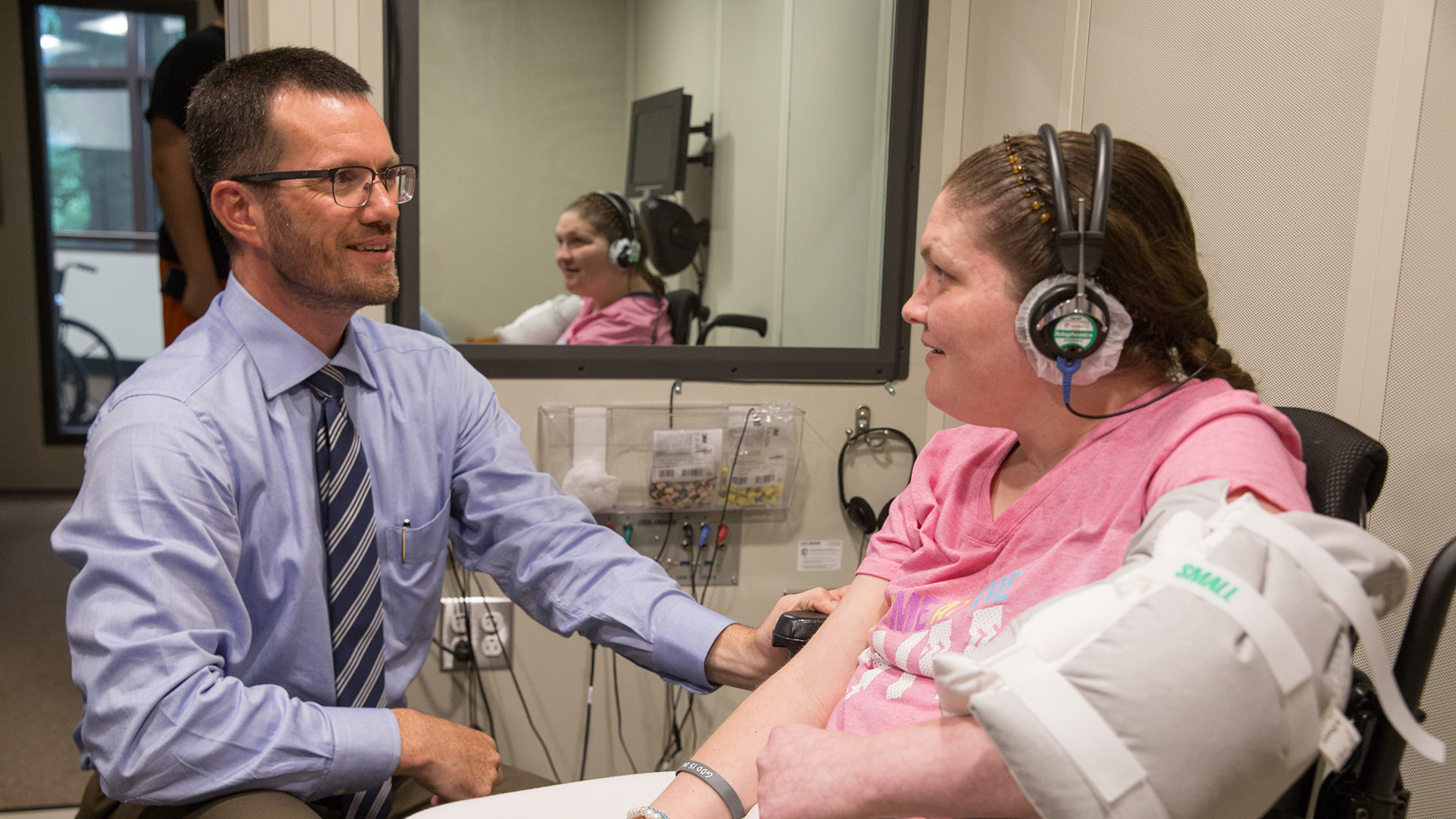According to the U.S. Bureau of Labor Statistics, careers in health care are expected to add more jobs than any other occupational group in the country, creating 2.4 million new jobs between 2016 and 2026. This booming demand has led to a more dynamic health care industry, and to meet this need, Samford continues to offer new programs that prepare competent, compassionate and skilled individuals who are answering their calling to care.
Since the inception of Samford’s College of Health Sciences, the university has launched several health care-related degree programs, but in the past year, this growth has been re-energized, marked by the launch of the School of Health Professions’ Doctor of Audiology program in fall 2018.
This four-year professional doctoral program is designed to prepare graduates to prevent, identify, diagnose and treat individuals with hearing loss and balance issues. In its first year, the program lived out its commitment to service with several opportunities for students to apply their knowledge and skills in service to the community.
Midway through their first semester, students participated in a health fair at an elementary school in Calera, Alabama, providing hearing screenings to nearly 700 students. “It was an amazing opportunity to apply what we’ve learned and get hands-on experience with hearing screenings,” said Allison Johnson, a second-year Doctor of Audiology student.
“Having clinical experiences so early in our program will be beneficial as we further our studies to obtain knowledge and hone our skills.”
This fall, both the School of Health Professions and the School of Public Health welcomed the inaugural cohorts for two new degree programs: Master of Science in Physician Assistant Studies and Doctor of Public Health.
Both graduate programs further emphasize the college’s commitment to interprofessional education. “A career as a physician assistant is inherently collaborative,” said Paul Harrelson, assistant professor and program director. “We live out interprofessionalism every day, working alongside physicians and other health care professionals to provide exemplary care through optimal team practice.”
While the physician assistant program is offered face to face, the Doctor Public Health is offered fully online. “We live in a time when technology is advancing our research and understanding of health and wellness at a rapid pace,” said Keith Elder, dean of the School of Public Health.
“Through our Doctor of Public Health program, we are preparing graduates to be like a beacon in their communities—providing analysis and leadership in the development of prevention-focused measures—here at home and around the world.”
In addition to these new degrees, Samford’s Ida Moffett School of Nursing has expanded its concentration offerings within its family nurse practitioner program to include psychiatric mental health. Students can pursue this concentration at the Doctor of Nursing Practice, Master of Science in Nursing, and certificate level.
But the growth is not done yet. The School of Health Professions anticipates the launch of its Occupational Therapy Doctorate in 2023.
Answer Your Calling
With more than 30 degree and certificate offerings, the four schools in Samford’s College of Health Sciences can prepare you to answer your calling to care.

